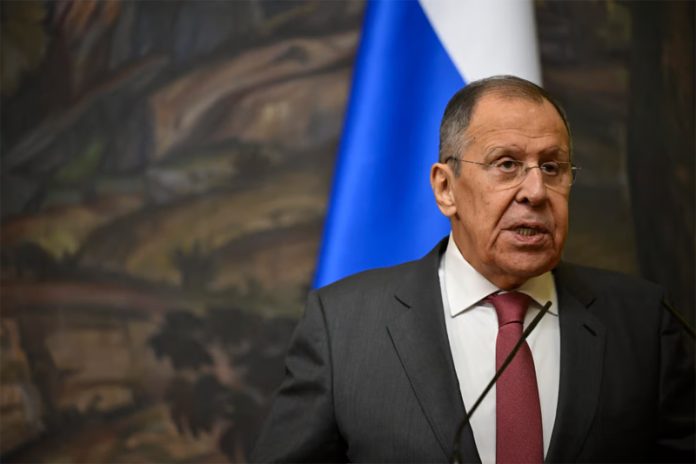MOSCOW, Nov 3 : BRICS countries have already drafted preliminary recommendations for alternative payment mechanisms that allow for developing safe and reliable systems, Russian Foreign Minister Sergey Lavrov has said.
“This was on the agenda of both our summit in Kazan and the meetings of our finance ministers and central bank heads that had taken place throughout the year. Recommendations have been drafted.
“They are not yet final, but they already make it possible to start creating reliable, sustainable, long-term systems. I am confident that Brazil, as the next chair [of BRICS], will continue this work,” Lavrov said in an interview with the international network TV BRICS.
BRICS has set itself a task to create payment platforms that will be immune from risks connected with the US dollar, the top Russian diplomat added, according to Sputnik.
“Given that the US dollar is increasingly used as an aggressive weapon in the global economy, a parallel system is needed. No one knows who will be next. No one is safe from this arbitrariness, given the desperate position of the United States in today’s world. They feel that their hegemony is slipping away, and it will be quick, but rather take a long time, so they want to use everything, including the most forbidden techniques, to preserve it,” Lavrov said.
The issue of full membership of countries interested in joining BRICS will be considered in 2025, the minister clarified.
Key takeaways from Sergey Lavrov’s interview on the BRICS summit in Kazan:
The summit’s declaration reflects a balance of interests, avoiding pressure tactics typical of Western forums. Consensus was reached on all major issues with mutually acceptable wording.
A core message was the need to significantly increase the representation of the Global South and East in global governance bodies like the UN Security Council, IMF, World Bank, and WTO.
Lavrov stressed the necessity for BRICS economies, representing some of the fastest-growing markets, to have voting power in the IMF and World Bank that mirrors their actual share in global GDP. The current imbalance, dominated by the US veto power, is seen as unjust.
The US has blocked the WTO dispute settlement body for over a decade, paralyzing its core function of handling trade conflicts. This issue remains unresolved, affecting fair global trade practices, he said.
The collective BRICS initiative focuses on establishing alternative payment systems, such as interbank settlements using national currencies and independent insurance mechanisms. These systems are designed to coexist with the dollar-centric framework while protecting against economic weaponization, Lavrov added.
The dollar’s increasing use as a geopolitical tool prompts the need for parallel financial systems, offering economic security in light of US actions to maintain global hegemony.
Lavrov highlighted support for sector-specific initiatives, including the creation of a BRICS grain exchange and investment/geological platforms. These projects have largely been driven by African member countries.
Russia proposed working groups focusing on transportation and nuclear medicine, receiving backing during the summit and reflected in the final declaration.
The “BRICS Plus/Outreach” summit, involving 35 countries, underscored broad support for BRICS’ direction. This momentum reflects a growing perception of BRICS as a leader for a fairer world order and a counterbalance to Western dominance.
Despite progress, colonial and neocolonial practices persist in global trade, particularly in Western relations with Africa, where raw materials are extracted, but added value and profits remain with external powers.
BRICS is an intergovernmental association created in 2006. Russia assumed the rotating presidency of the bloc on January 1, 2024. The year began with the accession of new members to the association. In addition to Russia, Brazil, India, China and South Africa, it now includes Egypt, Ethiopia, Iran, the United Arab Emirates and Saudi Arabia, according to the website of the Russian 2024 BRICS Chairmanship. Saudi Arabia has not reportedly formalized its participation but has been taking part in BRICS meetings.
The latest BRICS summit took place in Russia’s Kazan from October 22-24. At least 13 nations were granted the status of partner countries to the bloc during the event. (UNI)


